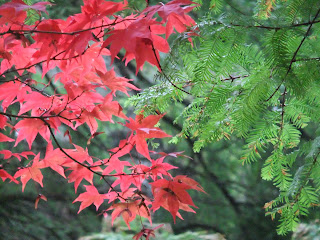Yes!
Somehow, despite a road closure adding an extra kilometre to the route, I completed the Great Gorilla Run 2011!
I won't lie, it wasn't easy. There is definitely not enough room for a human head and sufficient oxygen to run five miles in a gorilla mask. It is also nearly impossible to run up and down stairs when the eye holes are so small that you can't even see the stairs until your big furry feet are tripping down them. In addition, it's very difficult to drink the bottle of water kindly placed into your enormous gorilla hands when you have a plastic gorilla face plastered over your own. If I've learned anything from this experience it is never to entertain the possibility of running the London Marathon in a gorilla costume. Or even a half marathon, or a less than half marathon, for that matter.
That said, it was quite a lot of fun careering around the posh business bit of London with hundreds of gorillas in fancy dress. My gorilla pirate received huge amounts of attention from passing children, many of whom seemed to think I was the real Captain Jack Sparrow (the fact that I was a gorilla seemed to go un-noticed). Something else I had to get my head around was that there will undoubtedly be hundreds of photographs of me-dressed-as-a-gorilla-dressed-as-a-pirate in Facebook albums of people I don't know, all over the world. The tourists at Tower Bridge seemed to find the peculiar British past-time of running in gorilla costumes more interesting than the architecture!
But most importantly, we helped raise lots of cash to help The Gorilla Organization with their work to protect the gorillas and support sustainable development in their last remaining strongholds. I do not yet have a final total, but I will let you know when I do. In the meantime if you would still like to sponsor me retrospectively, you can do so at This Address!
If you have been kind enough to sponsor me already, thank you very much!

^ Me!

^ Fellow Gorillas

^ Lonely Gorilla




